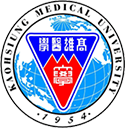|
◎聯絡方式◎ |
|
|
連絡電話:07-312-1101 ext.2512 #418 電子信箱: moish@kmu.edu.tw 辦公位置:國際學術研究大樓4樓研究室 |
|
|
◎學歷◎ |
|
國立高雄科技大學電子工程系博士 |
|
◎專長領域◎ |
|
生物資訊、機器學習、人工智慧、疾病風險模型、醫學資料庫 |
|
◎研究方向◎ |
|
近年來多聚焦於資料科學應用於醫學領域,研究成果涵蓋癌症次世代基因定序分析、腫瘤生物標誌辨識、醫學資料庫分析、癌症藥物反應評估、疾病預後風險評估等。 |
|
◎經歷◎ |
|
義大醫療財團法人義大癌治療醫院癌症規劃發展中心助理研究員 義守大學化學工程學系博士後研究員 |
|
◎期刊論文發表◎ |
|
(Selected) 1. Wang HC, Shih HY, Wu CC, Chen LT, Luo CW, Liu YC, Du JS, Huang MC, Su YY, Chen HD, Hsiao HH, Moi SH*, Pan MR*. Clustering of Chromatin Remodeling Enzymes Predicts Prognosis and Clinical Benefit of Therapeutic Strategy in Pancreatic Cancer. International journal of medical sciences. 2022 Sep;19(10):1615-1627. 2. Li CL†, Moi SH†, Lin HS, Hou MF, Chen FM, Shih SL, Kan JY, Kao CN, Wu YC, Kao LC, Chen YH, Lee YC, Chiang CP. Comprehensive Transcriptomic and Proteomic Analyses Identify a Candidate Gene Set in CrossResistance for Endocrine Therapy in Breast Cancer. International Journal of Molecular Sciences. 2022 Sep;23(18):10539. 3. Ou-Yang F, Li CL, Chen CC, Shen YC, Moi SH, Luo CW, Xia W, Wang YN, Lee HH, Wang LH, Wang SC*, Pan MR*, Hou MF*, Hung MC*. De-glycosylated membrane PD-L1 in tumor tissues as a biomarker for responsiveness to atezolizumab (Tecentriq) in advanced breast cancer patients. American Journal of Cancer Research. 2022 Jan;12(1):123-137. 4. Lin YD, Lee YC, Chiang CP, Moi SH*, Kan JY*. MOAI: a multi-outcome interaction identification approach reveals an interaction between vaspin and carcinoembryonic antigen on colorectal cancer prognosis. Briefings in Bioinformatics. 2022 Jan;23(1): bbab427. 5. Hung CC, Huang HI, Hung CM, Moi SH*. Identification of Candidate Genes in Early-Stage Invasive Ductal Carcinoma Patients with High-Risk Mortality Using Genes Commonly Involved in Breast Cancer: A Retrospective Study. Public Health Genomics. 2022 Jan;25(1-2):32-41. 6. Yang CH, Moi SH, Hou MF, Chuang LY*, Lin YD*. Applications of Deep Learning and Fuzzy Systems to Detect Cancer Mortality in Next-Generation Genomic Data. IEEE Transactions on Fuzzy Systems. 2021 Dec;29(12):3833-3844. 7. Hou MF, Ou-Yang F, Li CL, Chen FM, Chuang CH, Kan JY, Wu CC, Shih SL, Shiau JP, Kao LC, Kao CN, Lee YC, Moi SH, Yeh YT, Cheng CJ, Chiang CP*. Comprehensive profiles and diagnostic value of menopausal-specific gut microbiota in premenopausal breast cancer. Experimental & Molecular Medicine. 2021 Oct;53:1636–1646. 8. Wang HC, Chan LP, Wu CC, Hsiao HH, Liu YC, Cho SF, Du JS, Liu TC, Yang CH, Pan MR, Moi SH*. Progression Risk Score Estimation Based on Immunostaining Data in Oral Cancer Using Unsupervised Hierarchical Clustering Analysis: A Retrospective Study in Taiwan. Journal of Personalized Medicine. 2021 Sep;11(9):908. 9. Wang HC, Hsiao HH, Du JS, Cho SF, Yeh TJ, Gau YC, Liu YC, Moi SH*. Effect of Tumor Microenvironment and Angiogenesis on Clinical Outcomes of Primary Central Nervous System Lymphoma. BioMed Research International. 2021 Sep; 2021:1-8. 10. Wang WL, Chang IW, Moi SH, Hsu MH, Chen CJ, Hsu CT, Wang HP*, Lee CT*. Assessment of tumor extension to the ductal system of submucosal glands in patients with superficial esophageal squamous neoplasms: Implications for endoscopic resection. Journal of Thoracic and Cardiovascular Surgery. 2021 Sep;163(6):1951-1960. 11. Chen JB, Yang HS, Moi SH, Chuang LY, Yang CH*. Identification of mortality-risk-related missense variant for renal clear cell carcinoma using deep learning. Therapeutic advances in chronic disease. 2021 Feb;12:2040622321992624. 12. Kan JY, Lee YC, Lin YD, Ho WY, Moi SH*. Effect of Baseline Characteristics and Tumor Burden on Vaspin Expression and Progressive Disease in Operable Colorectal Cancer. Diagnostics. 2020 Oct;10(10):801. 13. Chen JB, Wu KC, Moi SH, Chuang LY, Yang CH*. Deep learning for intradialytic hypotension prediction in hemodialysis patients. IEEE Access. 2020 Apr;8:82382-82390. 14. Yang CH, Moi SH, Ou-Yang F, Chuang LY, Hou MF*, and Lin YD* (2019, May). Identifying Risk Stratification Associated with a Cancer for Overall Survival by Deep Learning-Based CoxPH. IEEE Access. 2019 May;7:67708-67717.
|
Sin-Hua Moi
Education:
National Kaohsiung University of Science and Technology, Kaohsiung, Taiwan
Ph.D. in Electronic Engineering
Main areas:
Bioinformatics, Machine Learning, Artificial Intelligence, Disease risk model, Medical database
Biography:
Sin-Hua Moi is an assistant professor at the Graduate Institute of Medicine, College of Medicine, Kaohsiung Medical University, Kaohsiung, Taiwan. She is a data scientist with specialization in statistics and machine learning algorithms. With over 50 academic papers authored/co-authored, her research interests are focused on bioinformatics, statistical modeling, and disease risk estimation. She is experienced in various data-driven processes such as data exploration, visualization, analysis, data mining, and modeling using R and Python. Her expertise in these programming languages has enabled her to provide valuable insights and solutions to complex data-related problems.

